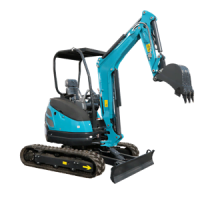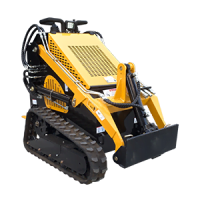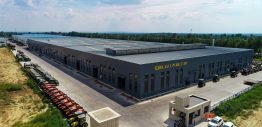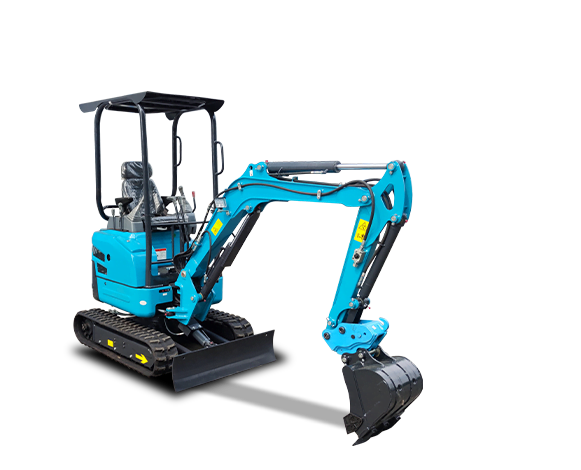1. Introduction
Understanding the Environmental Impact
Excavator backhoes are indispensable in construction and excavation projects, but their use can have significant environmental consequences. This comprehensive guide delves into the environmental impact of excavator backhoe use, examining factors such as emissions, soil disruption, noise pollution, and water quality. We also explore sustainable practices and regulatory compliance to minimize these impacts and promote environmentally responsible equipment operation.
2. Emissions and Fuel Consumption
2.1. Diesel Engines and Emissions
Excavator backhoes typically rely on diesel engines, which emit pollutants like nitrogen oxides (NOx) and particulate matter (PM). These emissions contribute to air pollution and pose health risks.
2.2. Fuel Consumption and Efficiency
Fuel consumption is a significant concern, as it affects both operating costs and environmental impact. Efficient operation and modern engine technologies can improve fuel economy.
3. Soil and Habitat Disruption
3.1. Soil Compaction
Heavy excavator backhoe equipment can lead to soil compaction, reducing soil porosity and affecting plant growth. Compaction can also hinder water infiltration and increase runoff.
3.2. Habitat Disruption and Deforestation
Construction and excavation projects can result in habitat disruption and deforestation, leading to the displacement of wildlife and loss of biodiversity.
4. Noise Pollution
4.1. The Impact of Noise Pollution
Excavator backhoe operations generate substantial noise pollution, affecting both workers and nearby communities. Prolonged exposure to high noise levels can have adverse health effects.
4.2. Mitigation Measures
Implementing noise-reducing technologies, conducting work during specific hours, and using sound barriers are measures that can help mitigate noise pollution.
5. Water Quality and Contamination
5.1. Soil Erosion and Sedimentation
Excavator backhoe activities can lead to soil erosion and sedimentation in nearby water bodies, negatively impacting water quality and aquatic ecosystems.
5.2. Fuel and Oil Spills
Fuel and oil spills from excavator backhoe machinery can contaminate soil and water, posing serious environmental risks. Proper spill response and prevention are essential.
6. Sustainability Practices
6.1. Sustainable Equipment Choices
Selecting eco-friendly excavator backhoe models and using attachments that minimize environmental impact can promote sustainability.
6.2. Operator Training and Best Practices
Well-trained operators who follow environmentally responsible best practices can significantly reduce the impact of excavator backhoe use.
7. Regulatory Compliance
7.1. Environmental Regulations
Stringent environmental regulations exist to mitigate the impact of construction equipment like excavator backhoes. Compliance with these regulations is essential.
7.2. Compliance and Reporting
Companies must maintain records of their environmental compliance and report on their efforts to minimize environmental impact.
8. Case Studies: Environmental Initiatives
8.1. Eco-Friendly Excavator Backhoe Models
Explore case studies of manufacturers designing and producing eco-friendly excavator backhoe models with reduced emissions and improved efficiency.
8.2. Eco-Restoration Projects
Discover real-world examples of eco-restoration projects that aim to repair environmental damage caused by construction and excavation activities.
9. Frequently Asked Questions (FAQs)
Q1. Can excavator backhoes run on alternative fuels to reduce emissions?
While some models can operate on biodiesel or alternative fuels, widespread adoption depends on infrastructure and cost considerations.
Q2. How can operators reduce fuel consumption during excavator backhoe use?
Operators can improve fuel efficiency by maintaining proper engine settings, minimizing idle time, and following efficient work practices.
Q3. Are there noise regulations that construction sites must adhere to?
Yes, many regions have noise regulations that construction sites must comply with to limit the impact on nearby communities.
Q4. What are some common environmental mitigation measures for excavator backhoe operations?
Measures include erosion control, spill response plans, reforestation efforts, and the use of noise barriers.
10. Conclusion
The environmental impact of excavator backhoe use is a significant concern in today’s world. While these machines play a crucial role in construction and excavation projects, it’s essential to recognize their potential environmental consequences. By adopting sustainable practices, complying with environmental regulations, and investing in eco-friendly equipment, the construction industry can mitigate the negative effects and contribute to a more environmentally responsible future.







-1.png)